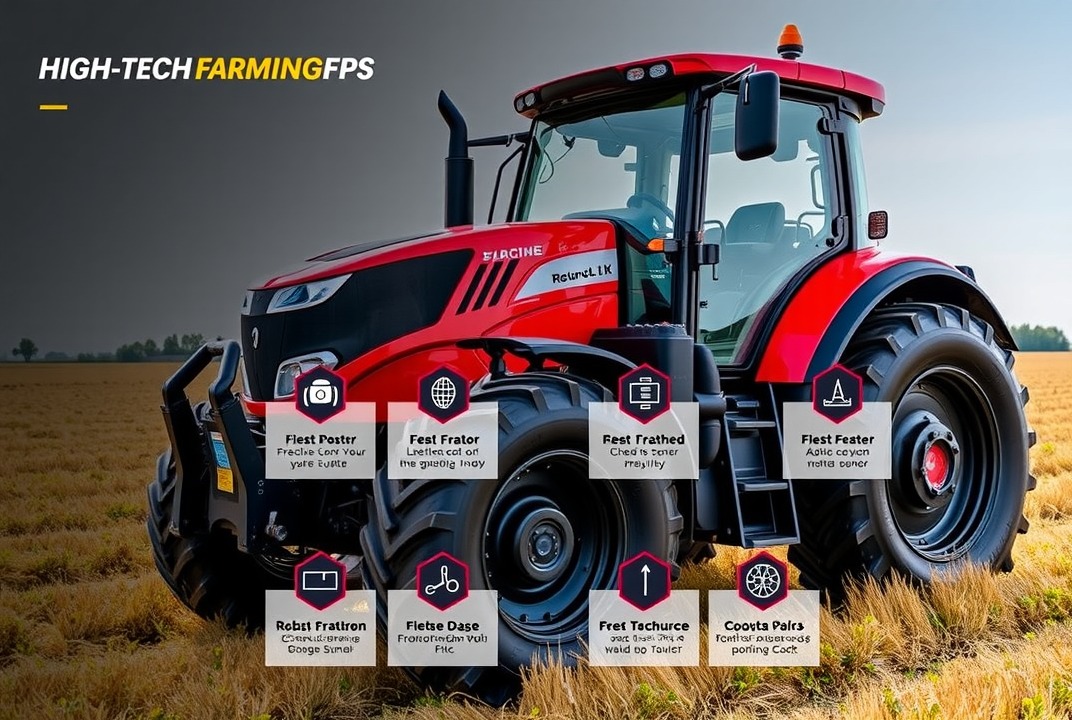Key Factors to Consider When Evaluating Farm Equipment

An Introduction to Farm Equipment Reviews
Did you know that the agricultural equipment market is expected to keep growing significantly in the coming years? With the rise of technological advancements in farming, selecting the right equipment has become crucial for farmers to maintain efficiency and competitiveness.
In this article, we’ll explore the essential factors you should consider when reviewing farm equipment. This will ensure not only the success of your operations but also help you make informed purchasing decisions. Whether you’re a new farmer or a seasoned professional, understanding these factors can aid in optimizing your farm operations.
1. Assessing Equipment Performance
Understanding Specifications
Before investing in any piece of farming equipment, it's crucial to review its specifications closely. Specifications provide insights into what the equipment can achieve in terms of power, capacity, and compatibility with other tools and machinery.
-
Power Capacity: Check the horsepower and engine capacity to ensure it matches your farm’s needs.
-
Size and Fit: Evaluate the size to see if it will fit with your existing farm layout as well as other machinery.
Testing and Trialing
Whenever possible, arrange for a demonstration or trial period. This allows you to see the equipment in action and assess how it handles your specific tasks.
-
Real-World Testing: Use the equipment on a small section of your farm to see its efficiency and performance first-hand.
2. Equipment Durability and Build Quality
Material Consideration
The materials used in the construction of farm equipment can significantly influence its longevity and maintenance needs.
-
Weather Resistance: Ensure materials are resistant to the local weather conditions, be it rust-resistant metals or UV-protected plastics.
-
Wear and Tear: Look for equipment built with high-quality materials that withstand everyday farming stresses.
3. Maintenance and Parts Availability
Ease of Maintenance
Regular maintenance is vital for keeping equipment in top working condition. Equipment that is easy to maintain saves time and reduces downtime.
-
Accessibility: Ensure all parts that require regular servicing are easy to access.
Parts and Support
A reliable supply of spare parts and strong support structure can add to the equipment's lifespan.
-
Local Suppliers: Source equipment with readily available parts in your local area.
-
Customer Support: Opt for brands with good after-sales service and technical support.
4. Cost Analysis and Budgeting
Purchase vs. Operating Costs
Evaluating the cost of farm equipment goes beyond the initial purchase price.
-
Initial Cost: Compare prices between brands but do not compromise on quality for a lower price.
-
Operating Costs: Consider fuel consumption, regular maintenance costs, and potential repair expenses.
Financing Options
Understanding financing options available can help in budgeting and cash flow management.
-
Loans and Leases: Explore different financing solutions including leases and loan terms that fit your budget.
5. Technological Innovations
Smart Technology Integration
Modern farming equipment often comes with integrated smart technology that can enhance productivity and efficiency.
-
GPS Technology: Helps in precision farming by optimizing field plans and reducing wastage.
-
Automated Controls: Features like automated driving systems can reduce labor costs.
6. Compatibility with Existing Equipment
Versatility
Ensure new equipment can integrate seamlessly with what you already use.
-
Attachment Points: Check compatibility for attachments and extensions.
-
Software Integration: Look for software that can communicate with existing farm management systems.
Conclusion
Choosing the right equipment is pivotal in enhancing farm productivity and operational efficiency. By focusing on performance, durability, maintenance, cost efficiency, technological features, and compatibility, farmers can make well-informed decisions.
Take the time to analyze each piece critically and seek expert advice if necessary. Investing wisely in farm equipment can lead to substantial long-term savings and improved farm management.